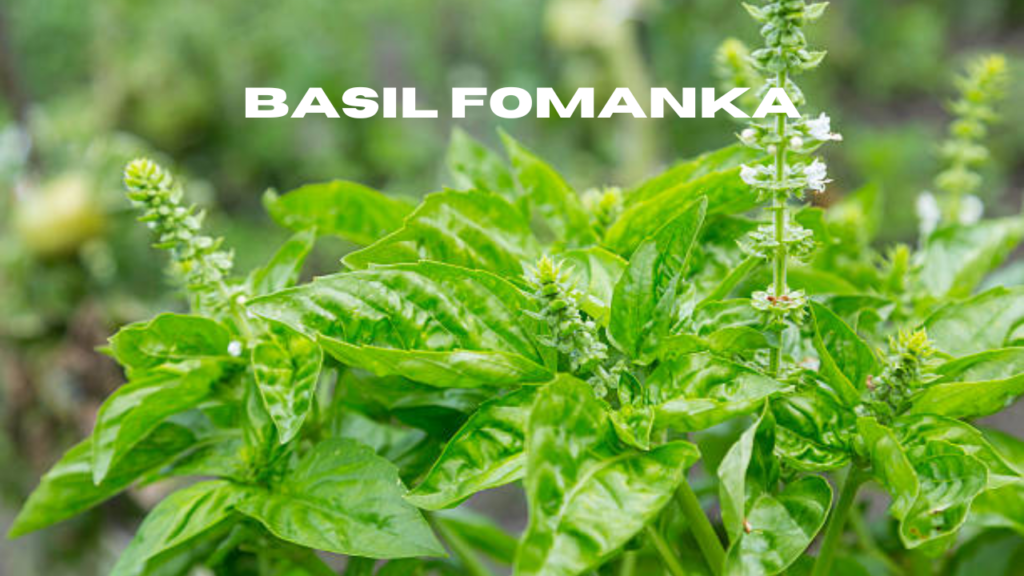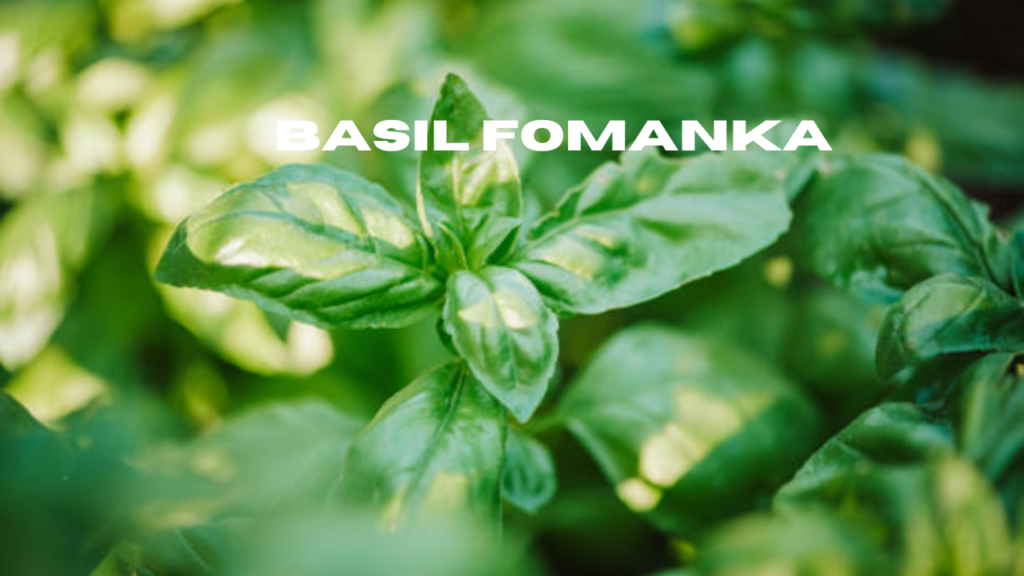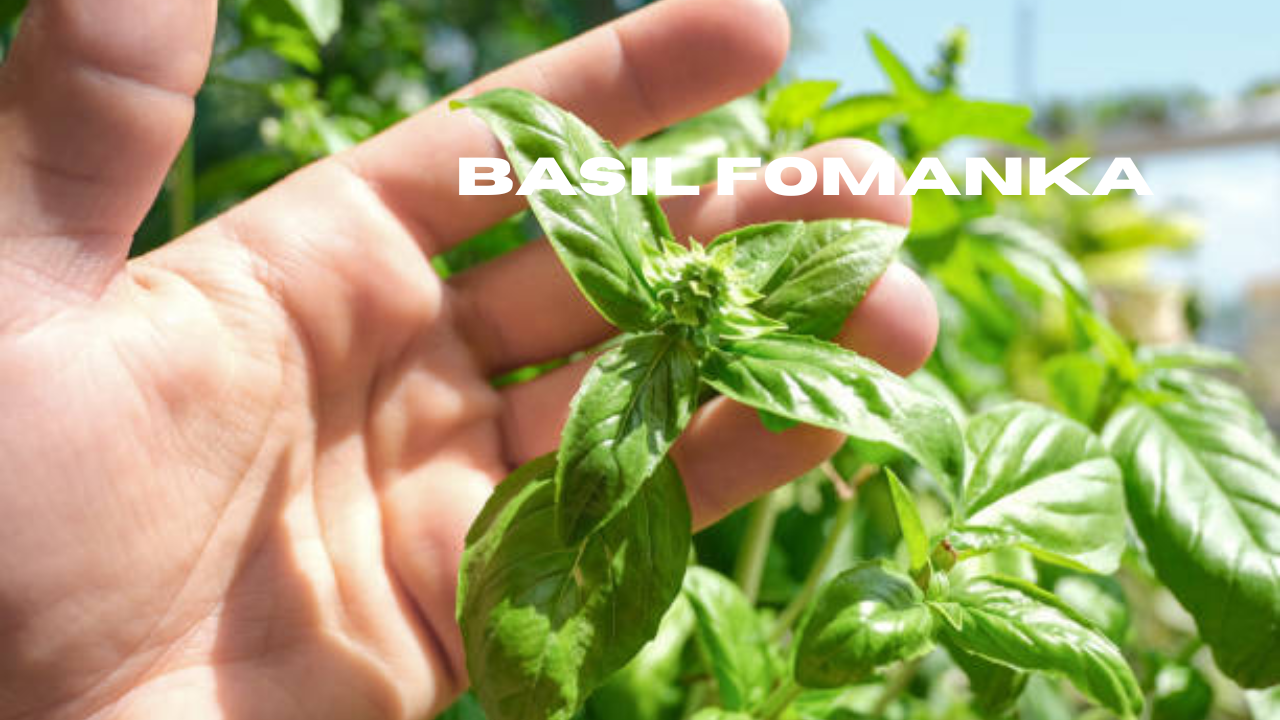When we consider nature’s diverse range of fascinating creatures and plants, some names stand out for their uniqueness and allure. One such name is basil fomanka. It may sound unfamiliar to some, but once you dive into its intricate characteristics, you will see why this phenomenon deserves recognition. From its intriguing properties to its eco-friendly nature, basil fomanka is a subject worth exploring.
What Exactly is Basil Fomanka?
Basil fomanka is an extraordinary example of nature’s innovation. Often confused with more common forms of basil due to its similar name, basil fomanka stands apart with its distinct features. This variety is known for its unique growth patterns and properties, making it a topic of interest for gardeners, botanists, and eco-conscious individuals.
Unlike the typical culinary basil we commonly use in cooking, basil fomanka offers a different kind of allure. It boasts vibrant foliage rich in nutrients and thrives in conditions that favor sustainable growth. The plant has become a symbol of environmental friendliness, as it requires minimal resources and can even improve soil quality around it.
Eco-Friendly Benefits of Basil Fomanka
One of the most captivating aspects of basil fomanka is its eco-friendly nature. As more people become concerned with sustainability and minimizing their carbon footprint, this plant is a perfect example of a low-maintenance yet impactful option.
- Water Conservation: Basil fomanka is designed to withstand dry spells, making it an excellent choice for areas where water conservation is essential. It has developed a deep root system that helps it access water from the soil efficiently, reducing the need for constant irrigation.
- Soil Health: Basil fomanka thrives in diverse soil conditions and plays a key role in improving soil health. Its roots release natural compounds that help break down organic matter, enriching the surrounding soil with nutrients. This makes it a great plant for anyone looking to enhance the quality of their garden or farmland naturally.
- Low Chemical Dependency: This plant is known for its resistance to pests, so it doesn’t require heavy chemical treatments. It’s naturally resilient, reducing the need for synthetic pesticides and fertilizers that can harm the environment.

How to Grow Basil Fomanka: A Beginner’s Guide
Starting your basil fomanka garden is a rewarding experience. The plant is easy to grow, requiring only a few simple steps to ensure a thriving environment.
- Choose the Right Location: Basil fomanka thrives in well-drained, sunny spots. Whether in a garden bed or a pot, ensure it gets at least 6 hours of sunlight daily. The more sunlight it receives, the more vibrant and robust it will grow.
- Prepare the Soil: While basil fomanka can adapt to various soil types, it is best to start with slightly acidic to neutral soil. Before planting, mix in some organic compost to enrich the soil, ensuring it’s nutrient-rich for the plant’s growth.
- Watering and Care: Basil fomanka doesn’t require frequent watering once planted. Water it deeply, but allow the soil to dry out between waterings to prevent root rot. Be mindful not to overwater; it’s better to let it be slightly dry than moist.
- Pruning: Regular pruning encourages bushier growth and prevents the plant from becoming too leggy. Remove any dead or damaged leaves to maintain the plant’s health.
- Harvesting: Once established, basil fomanka can be harvested for its leaves and flowers. The leaves, in particular, are fragrant and packed with beneficial oils, making this plant a favorite among those who appreciate its potential for aromatherapy and natural remedies.
The Role of Basil Fomanka in Eco-Conscious Landscaping
As the world continues to embrace eco-friendly landscaping practices, basil fomanka presents a valuable solution. Landscaping with basil fomanka enhances a garden’s aesthetic appeal and promotes sustainability.
- Natural Pest Control: Basil fomanka’s aromatic oils have been shown to deter certain pests, making it a natural form of pest control. This can help create a more harmonious ecosystem in your garden, minimizing the need for harmful chemicals.
- Attractive and Low Maintenance: Gardens featuring basil fomanka are not only beautiful but also require less maintenance. The plant’s resilience allows it to withstand fluctuating weather patterns and doesn’t need constant attention, making it an excellent choice for both novice gardeners and those with busy schedules.
- Pollinator Support: Basil fomanka’s bright flowers attract beneficial pollinators such as bees and butterflies. This contributes to the overall health of the local ecosystem, supporting biodiversity.
**Health Benefits and Uses of Basil Fomanka
Aside from its environmental benefits, basil fomanka has been recognized for its potential health benefits. Its rich composition of essential oils, antioxidants, and anti-inflammatory compounds makes it a popular choice for natural remedies and wellness.
- Stress Relief: The oils extracted from basil fomanka have calming properties. Many people use these oils in aromatherapy to reduce stress and promote mental clarity.
- Digestive Health: Basil fomanka has traditionally been used to support digestive health. It is thought to help with digestion by stimulating the production of digestive enzymes.
- Anti-inflammatory Effects: The plant’s oils have anti-inflammatory properties that may help reduce swelling and inflammation, making it an ideal natural remedy for various conditions.
Also read: WellHealth How to Build Muscle Tag: Your Ultimate Guide to Strength and Growth

Why Basil Fomanka Is Worth Your Attention
If you’re searching for an eco-friendly, low-maintenance, and visually appealing addition to your garden, basil fomanka is the perfect choice. Not only does it offer various environmental benefits, but it also contributes to the health and well-being of the ecosystem and individuals. With its ability to improve soil quality, attract pollinators, and reduce the need for chemicals, basil fomanka represents a significant step towards a more sustainable future.
Whether you are a seasoned gardener, an eco-conscious landscaper, or simply looking to add more greenery to your surroundings, basil fomanka is an exceptional option. Its versatility, resilience, and eco-friendly nature make it a standout plant for any setting.
Incorporating basil fomanka into your life not only brings beauty to your space but also meaningfully supports the environment.

















































I view something really interesting about your blog so I saved to my bookmarks.